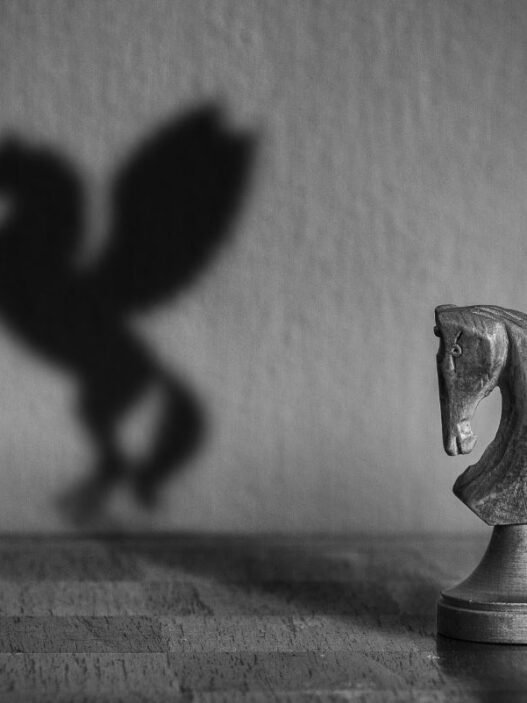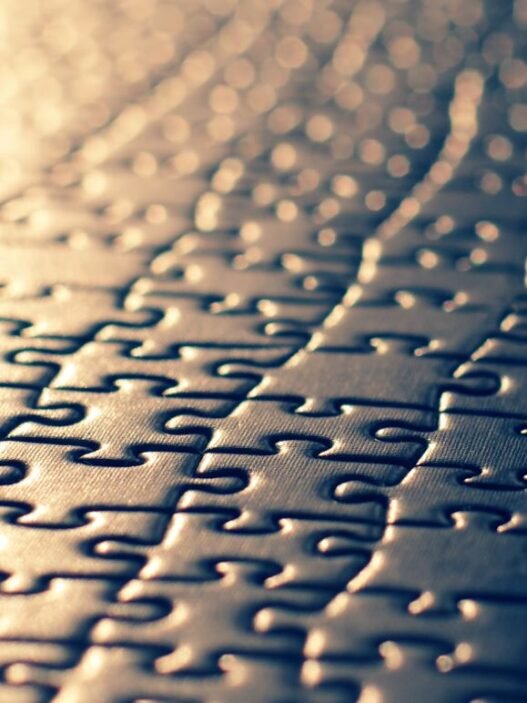People often form their beliefs not based on evidence or arguments but on what seems appealing to them.
This creates a complex of views, judgments, values, and a personal worldview. As a result, we cling to our initial beliefs as the foundation of our reality and are willing to defend them at all costs, ignoring any contradictory information. This cognitive distortion has deep-rooted consequences that affect all areas of life.
Why Biases Are Strong
The resilience of beliefs is due to bias and fear. On one hand, a person is confident that their worldview is accurate, that the puzzle is correctly assembled and does not need reevaluation. On the other hand, the very thought of being wrong is frightening because it implies the collapse of the entire framework. The choice then becomes whether to continue defending the current position or start from scratch and piece together a new worldview. This process is labor-intensive, and the benefits are not immediately apparent. What difference does it make what you believe, especially since a second attempt might also lead to error?
To avoid conflict between biases and reality, individuals reject any new information that contradicts their established views. Selective perception kicks in to confirm one’s own correctness. Preferences are given to sources that support one’s views, while all other facts are ignored as if they do not exist.
Biases in Personal Relationships
Bias about people plays a crucial role in shaping relationships. This applies to all types of social interactions—from romantic relationships to friendships, from family dynamics to career development. Beliefs often dictate future behavior patterns even before the other person has done or said anything. Moreover, upon hearing rumors, you might form an opinion about someone before even meeting them.
For instance, if you convince yourself that a partner is unfaithful, jealousy will cloud your judgment. You might start to suspect and check for hints, even when there are none. This can eventually destroy the relationship or make it unhappy. Conversely, excessive trust and the belief that someone will never betray you can also be blinding.
We often have a best friend whom we tend to see only in a positive light, despite their flaws. This view persists until a personal conflict occurs, after which friendships can end abruptly, turning friends into enemies. You may recall similar instances of bias in your own life, which, though they may differ from these examples, likely led to unpleasant outcomes.
RELATED STORY – 8 Signs You Don’t Use Your Time Effectively
Biases in Politics
Politics is an area where biases exhibit remarkable resilience. Often, a person’s views are impervious to change. This is because we tend to identify strongly with a particular politician, party, or political movement. Abandoning previous views is perceived as betrayal and requires acknowledging the correctness of former opponents. Few are willing to take this step, as it demands not only clear thinking but also courage.
On the other hand, being trapped by biases can be quite comfortable. People rely on familiar media outlets that reinforce their existing beliefs. There are researchers, bloggers, and even philosophers who affirm your viewpoint. Events in the country or the world can be interpreted in a way that supports your political preferences. Opponents are dismissed as fools without fair assessment, and strong contrary views only serve to polarize opinions further, making them even more rigid. This reaction is a defense mechanism where weakness and fear are misperceived as strength.
Health-related Biases
Biases related to health and medicine can be particularly dangerous. They come in several forms. One of the most common is the belief that “it will go away on its own.” Many ailments, especially when you’re young, do resolve themselves, though they may leave lasting effects. However, there comes a point when professional medical help becomes essential, and delaying treatment can significantly worsen the situation.
Another widespread bias is distrust of conventional medicine. Some people prefer alternative remedies, magical rituals, or dietary supplements over visiting a doctor. Unless someone close to them intervenes and insists on professional medical care, these attitudes often lead to worse outcomes.

How to Deal with Biases
Biases are pervasive and can manifest in any area of life. Therefore, it is impossible to find a universal antidote that works equally well in all situations. However, research on this topic has identified some methods that can help at least mitigate the persistence of biases.
Critical Thinking
Start by questioning small things before moving on to larger beliefs. Consider alternative viewpoints not to confirm or refute them, but out of curiosity. This approach helps you process information more neutrally, although initially, you might experience internal resistance and rejection of unfamiliar ideas.
Diverse Information Sources
It’s important to diversify not only your sources but also the methods of obtaining information. Read, watch, and listen, adjusting proportions based on your saturation level. Develop the habit of verifying information independently, especially what you hear in casual conversations at work or among friends. Challenging less authoritative opinions can serve as good practice.
RELATED STORY – 8 Reasons Why You Can’t Focus on Work Tasks
Reflect
Reflective practice involves a deep evaluation of your own views, ideas, and values. Most, if not all, of these were likely adopted from external sources, perhaps slightly modified to fit more comfortably into your personal worldview. Try to retrace your steps and recall when and under what circumstances you adopted these beliefs.
Broaden Your Horizons
Dedicate time to exploring diverse subjects unrelated to your work or current interests. This helps expand your perspective. Along with new, neutral knowledge, fresh concepts will naturally enter your mind. Prepare yourself to part with your biases not with bitterness, but with a sense of regret, as if saying goodbye to a once-dear friend whose path has diverged from yours. Some of these beliefs will remain with you as fond memories of the past.



















